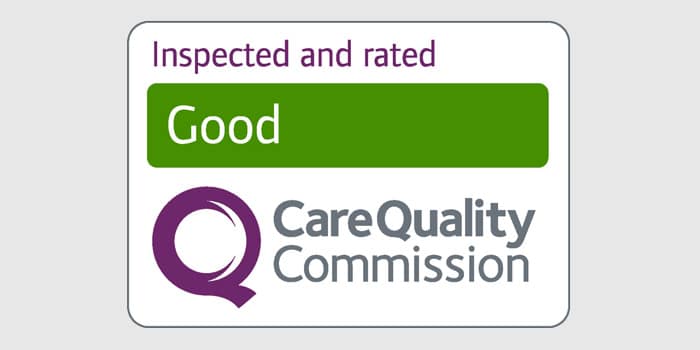Paying for Home Care
If you or your loved one are considering paying for Home Care, there’s a wide range of services available to suit your individual needs. There are also several ways to fund your Home Care.
Most people want to age comfortably in their own homes and Home Care is often more cost effective than residential care. However, paying for in Home Care is still something that needs to be carefully planned for and it’s vital to consider how you’re going to fund care.
State funding is not available to everyone. For many people, self funding is the route they must take to secure quality care at home. For others, they may be eligible for local authority care funding following a means tested financial assessment.
Knowing your options – from paying for your own care to local authority care funding – can help you make an informed decision and ease the stress of arranging Home Care.
Find your nearest Team…
Why pay for Home Care?
Home Care helps those who are finding it difficult to cope with daily tasks such as washing, dressing or getting out and about. The significance of Home Care is that it enables you or your loved one to continue living independently at home.
Whether you need regular visiting care or require more comprehensive continuous care, a professional Carer can provide peace of mind and improve quality of life. Scroll across to explore the benefits:
What Home Care funding options are there?
If you’re concerned about paying for Home Care and need financial aid, there are many ways to find help and fund your care.
Please note: the summary of options provided below are for information purposes only. Alina Homecare is not authorised to provide financial advice. It’s recommended you seek professional advice from a registered advisor before considering some of the following options:
If you’re State Pension Age (65) or above and have care needs, you can claim for Attendance Allowance.2 Like PIP, Attendance Allowance is a state benefit that helps with the extra costs of living with a disability severe enough that you need help caring for yourself.
The eligibility for Attendance Allowance is:
It’s not means tested so your earnings or any savings won’t affect how much you receive. However, it’s paid two-weekly at two different rates and the rate you receive depends on the level of help needed.
You may qualify for some level of local authority care funding. Local authorities only have resources to provide funding to people who meet certain criteria. Therefore, funding is means tested to determine who can receive financial help.
You can have a financial assessment from your local council to see if you qualify for financial support. If you qualify, the local authority for your area will contribute towards your care. If you’re ineligible, the local authority must still provide you with information on how to get help in your area.
During the assessment, a Financial Assessment Officer will visit your home and investigate earnings, pensions, benefits, savings and your property (including overseas property). It’s worth nothing, if you need a paid Home Carer then the value of your house won’t be included in the financial assessment. However, if you’re paying for a care home, the value of your house will be included unless your partner is still living in it.
Local authority care funding is determined by the following:
The financial assessment is free and the local authority will work out how much you need to contribute. If you’re eligible for help, it may be that the local authority pays the maximum amount towards your care and you must contribute the rest. Alternatively, they’ll determine whether you need to pay the larger contribution and they will pay the smaller amount. They’ll regularly reassess your finances, usually annually, to reaffirm your eligibility.
If the local authority is going to pay towards your care, they’ll give you a personal budget. The personal budget can be managed by your local authority, which will arrange care and pay the care provider directly on your behalf.
Alternatively, you can choose to receive the personal budget as a direct payment into your bank account for you to use against certain types of care. The local authority may then ask for receipts to prove you’re spending the money appropriately.
Receiving direct payments allows you to have more flexibility with spending your personal budget on care. For example, you could:
If the financial assessment finds you’re ineligible for local authority contributions, you may still be eligible for other state benefits, depending on personal circumstances.
The NHS Continuing Healthcare (CHC)3 scheme is a package of support provided outside of a hospital to adults with complex health needs. It’s arranged and funded solely by the NHS.
The scheme isn’t dependent on specific diagnoses or conditions. Instead, eligibility is determined according to the following criteria:
To check eligibility, you must be assessed for NHS Continuing Healthcare by a team of healthcare professionals, known as Integrated Care Boards (ICBs). If your needs change then your eligibility for NHS Continuing Healthcare may also change.
Personal Independence Payment (PIP)1 is a state benefit available to people living with a long term physical or mental health condition or disability. It’s available for people between 16 and State Pension Age (65) who have difficulty doing certain everyday tasks or getting around because of their condition.
There are two elements to PIP and you may be able to claim one or both:
Having a long term illness or disability can make everyday life more difficult and affect your income. For instance, if you need to give up work or reduce working hours then PIP gives you extra money to help pay for things. It’s tax free and available whether you work or not. It’s not means tested so how much you earn is irrelevant.
If you’re awarded PIP before you get to State Pension Age, you’ll continue to receive it afterwards too.
Self funded Home Care means you’re paying for your own care. This may be because you’re ineligible for local authority care funding if your assets are greater than £23,250.
In this case, you can arrange and pay for private care yourself without involving the local council. Alternatively, you can ask the council to arrange and pay for your Home Care, then the council will bill you directly. It’s worth nothing that not all councils offer this service and some may charge a fee for acting between you and your care provider.
If your local council isn’t providing financial help towards your care, you can still seek advice from them to support you. The local council can do a needs assessment to check what care you might need. This assessment is free and can determine whether you need help from a paid Carer for a few hours a day or week and precisely what they should help you with.
There are several ways you can raise funds to pay for your own care, such as using savings and investments or income from pensions. It’s essential to make sure you’re getting all the benefits you’re entitled to, such as Personal Independence Payment and Attendance Allowance mentioned above.
If you’re struggling to self fund care, you may consider selling your home and downsizing to a smaller property, or letting a spare room to a lodger if you can. Another option is to consider equity release schemes, but you should always seek professional advice from a financial advisor before considering this.
Remember, you may not always be self funded. Once your assets fall below the current threshold, you may then qualify for local authority care funding and can request another financial assessment.
A lifetime mortgage is a type of equity release available to homeowners aged 55 or over. They allow homeowners to access equity in their property whilst they retain ownership.
They’re the most common way of releasing equity by allowing you to borrow money against your home as a lump sum or as regular income.
Unlike a traditional mortgage, a lifetime mortgage doesn’t involve repayments to the lender. Instead, interest is added to the balance so the amount owed increases over time. The loan is only repaid when the homeowner dies or moves into residential care. Once the property is sold, the loan is repaid from the sale.
An advantage of lifetime mortgages is that the homeowner can access equity in their property without selling it. However, this may not be the best way to borrow money. As interest is added to the loan over what could be a long period of time, this mounts up and you could end up repaying almost as much as you borrowed. Once the property is sold, this could have an impact on how much is left for inheritance.
Borrowing money as a lump sum means interest is charged on the whole amount at a fixed rate. However, borrowing money as and when you need it means only paying interest on the money you’ve taken. Spreading out your borrowing will therefore reduce the impact of compound interest.
If you decide to repay your loan early, this often results in an early repayment charge. The penalty charge depends on how long you’ve had the loan but, in some cases, it can be as high as 25%. However, some partial repayments can be penalty free, but there may be a limit on how much you can repay per year.
Equity release can be right for some people but it’s an expensive way to borrow money. If you’re considering it, it’s crucial you seek financial advice from a professional advisor.
Home reversion plans are another type of equity release, only available to people aged 65 or over. They allow the homeowner to sell a share of their home to a reversion company in exchange for a lump sum or regular income.
Unlike lifetime mortgages, the homeowner sells a portion of their property rather than borrowing against it. They can then continue living in the home rent free for the rest of their life or until they decide to sell the property.
Once the property is sold, the reversion company will receive their purchased share of the sale proceeds while the homeowner receives the rest. For example, if the homeowner sold 25% of the property to the home reversion company, the reversion company would subsequently receive 25% of the sale price.
The main advantage of a home reversion plan is that the homeowner can access equity from their home without selling it completely. They’re able to continue living at home rent free. However, the amount of equity left in the property is reduced which will have an impact on inheritance.
Releasing equity from your property is a big decision and home reversion plans can ultimately be very expensive. They should only be considered if you’ve sought professional financial advice.
Why choose Alina Homecare?
What is the cost of Home Care?
The cost of Home Care varies depending on the type of care needed, how often it’s needed and where the person receiving care lives. We offer everything from short visits to 24 Hour Care and Live-in Care. If you have more complex needs, you may need two Home Carers per visit which will increase the cost.
Home Care costs are an important factor in the decision making process between Home Care or moving into a care home. Paying for care in your own home is often a cost effective alternative and allows independence to be maintained.
Receiving professional care provided in the comfort of your own home allows you or your loved on to stay in the community you’re familiar with. As well as enjoying additional companionship, you can benefit from minimal disruption to daily routines.
What is the cost of Live-in Care?
Live-in Care is a great option for those needing continuous care but who don’t wish to relocate to a care home. A dedicated Live-in Carer will move into the home and be there to help whenever you need them. As a result, the cost of Live-in Care will be higher than visiting care.
Unlike other Home Care options, our Live-in Care costs remain the same wherever you live across the South of England. However, everyone’s needs are different so the cost of Live-in Care can vary depending on the level of care required.
How can I arrange Home Care?
Choosing the right Home Care provider can be challenging. Our Teams are ready to guide you through the process – from understanding funding to dealing with other healthcare professionals.
All our services are designed to be as simple and stress free as possible. We work wherever possible to your timings and to ensure care is in place when it’s needed.
To arrange Home Care, find your local Alina Homecare Team. We’ll then meet with you to conduct a free no-obligation assessment of your needs. Following this, we’ll work with you to create a care plan that’s suitable and personalised to you. We’re here to make life easier.



Quick questions
How can I fund Home Care?
Most of our customers pay for care privately as a self funder, but you may be eligible for financial support if you meet certain criteria. If you need help with the cost of Home Care, you can have a financial assessment by your local authority. This will determine if you’re eligible for help towards your care costs and whether your local authority will provide this.
If you need help with Home Care funding, it’s important to make sure you’re receiving all the benefits that you’re entitled to. If you’re ineligible for help from your local authority but still need help funding care, there are other options available. You should seek advice from a financial advisor before considering these.
What’s the cost of Home Care?
The cost of paying for Home Care privately will vary according to where you live, the type of care you need and how often you need it. Most of our Home Care services are charged on an hourly basis to ensure your care remains fully flexible and changeable to suit your needs. If Overnight Care, or 24 Hour Care, is required then costs can be charged at a fixed rate.
Learn more about the cost of Home Care in your area or find your local Alina Homecare Team.
How much does Live-in Care cost?
Unlike visiting care, Live-in Care is charged at a fixed rate to ensure you receive the best value for continuous quality care. Learn more about the cost of Live-in Care or find your local Team.
Is Home Care cheaper than a care home?
Depending on the type of care you need, Home Care can be a cost effective alternative to a care home. This is especially true for couples who need care. However, it’s worth considering that care homes offer a different type of service than having Carers in your own home. Deciding between a care home versus Home Care is a major decision that only you can make.
How can I arrange Home Care?
We operate a responsive service. We work hard to ensure your care is implemented as soon as possible. In most instances, we can start providing Home Care within 48 hours. To enquire about our Home Care services, find your local Alina Homecare Team.
What can I expect from Alina Homecare?
We deliver professional services with compassion, dignity and respect. All our Carers are committed to fulfilling our goal to make your life easier. They fit into your usual routines so you can continue living your life the way you want to.
Our services are managed locally; this means you can count on us when your Carer has time off as our local Team will step in to ensure continuity of care.
In addition to this, we have a proud partnership with Birdie Care. Their innovative care technology means that, with your consent, loved ones can monitor the care you receive via the Birdie Family App. for added reassurance.
How do you compare to an introductory agency?
We are not a care agency; therefore, you don’t need to worry about any hidden agency fees or retainers. We have an internal Recruitment Team who employ our Carers directly so there are no additional costs of Carers to you. Our Carers go through rigorous pre-employment checks before receiving extensive induction training through our exclusive Alina Homecare Academy. Agency Carers, on the other hand, may not complete any mandatory training.
Introductory agencies don’t have to be regulated by the Care Quality Commission (CQC) and quality cannot be guaranteed. At Alina Homecare, we provide fully regulated services that are inspected by the CQC.
Contact us
1. GOV UK, “Personal Independence Payment (PIP)”, Reviewed 13 September 2023
2. GOV UK, “Attendance Allowance”, Reviewed 13 September 2023
3. NHS, “NHS Continuing Healthcare”, Reviewed 13 September 2023





